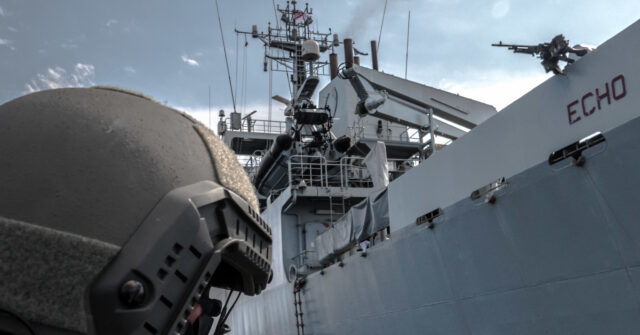The recent revelation concerning the number of civil servants in Britain’s Ministry of Defence highlights a striking imbalance between administrative personnel and active military personnel. Within the UK’s defence sector, there are nearly as many civilian staff as soldiers, with the count of civil servants reaching 63,702 as of April this year. This figure contrasts sharply with the British Army, which has seen a continuous reduction in its ranks, now standing at 72,510 and anticipated to fall under 70,000 shortly. The Royal Navy and Royal Air Force, facing similar shortages, have combined strengths that total just 57,260, less than the civilian workforce managing the military objectives from Whitehall. The increasing bureaucratic presence raises significant questions about the efficiency and sustainability of Britain’s defense apparatus at a time when military readiness is under scrutiny.
The insight into the disproportionate ratio of civil servants to soldiers comes from former defence minister Lord Lee of Trafford, who expressed concerns over the modernisation and efficiency of the Ministry of Defence. Lee’s observations imply that the increase in civilian roles, contrary to trends in the private sector where businesses have streamlined operations, calls for urgent attention. He argues that this disparity reflects a broader issue within the public sector, where productivity has stagnated. The existence of over 63,000 civil servants, while the Army itself struggles, presents an argument for reviewing and potentially reallocating resources within the defence structure. The emphasis seems to be on returning military strength to a more effective state, in turn ensuring the country’s defense capabilities align with its foundational security needs.
This burgeoning administrative structure in the military context comes at a critical juncture. With International and political leaders expressing concerns over the UK’s military-readiness, Defence Minister John Healey’s recent comments highlight a growing trepidation about the nation’s ability to engage effectively in large-scale conflict. Healey acknowledged the necessity to enhance the UK’s deterrent capabilities but remained tethered to a narrative of achieving more with fewer resources, citing advancements in technology. However, the situation is complicated by findings from a recent House of Lords report which suggests that the reliance on technology could be misguided, particularly when faced with real-time adaptive adversaries, as seen in the ongoing conflict in Ukraine.
The Ukraine War has profoundly reshaped thinking about military resource allocation and strategy, underlining the limitations of a defence strategy predicated on rapid conflict resolution. The underlying premise that future conflicts would subside quickly is increasingly considered naive. The House of Lords report draws attention to crucial lessons from Ukraine, stating that while Britain’s armed forces are well-trained and outfitted, they remain inadequately prepared for protracted and large-scale confrontations, which are becoming more common. The push for efficiency through reliance on cutting-edge technology has proven insufficient when combating well-resourced and strategically adaptable forces.
Moreover, the persistent argument that technological sophistication can compensate for diminished troop numbers fails to resonate in the context of modern warfare. The conflict in Ukraine illustrates the reality that innovative technology alone cannot swiftly resolve disputes among technologically competent states. Rather, a well-rounded military strategy must factor in mass troop deployment as an indispensable element of readiness and flexibility. In essence, this evolving military landscape necessitates re-evaluating the balance between administrative oversight and frontline capacity, where robust personnel is just as essential as advanced weaponry.
As Britain continues to navigate its path in an increasingly unpredictable global security environment, the tensions between civilian administration and military necessity prompt critical discussions on defence policy reform. The growing dominance of civil servants within the Ministry of Defence raises poignant questions about efficiency, accountability, and the strategic priorities that define the UK’s national defense. These deliberations, fueled by empirical evidence from contemporary conflicts, compel a re-examination of how Britain prepares for potential threats and engages in its military commitments, as the need for a cohesive, capable, and resilient armed force becomes a priority in the face of evolving global challenges.

